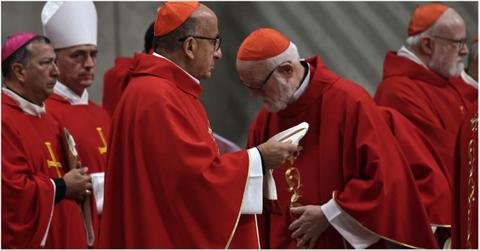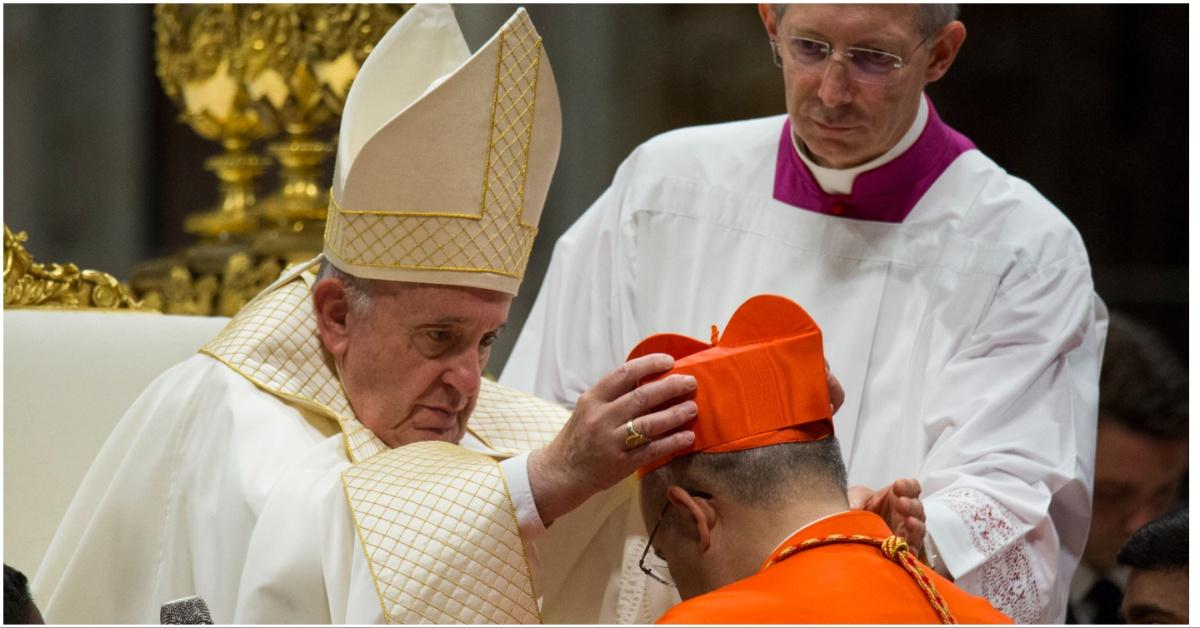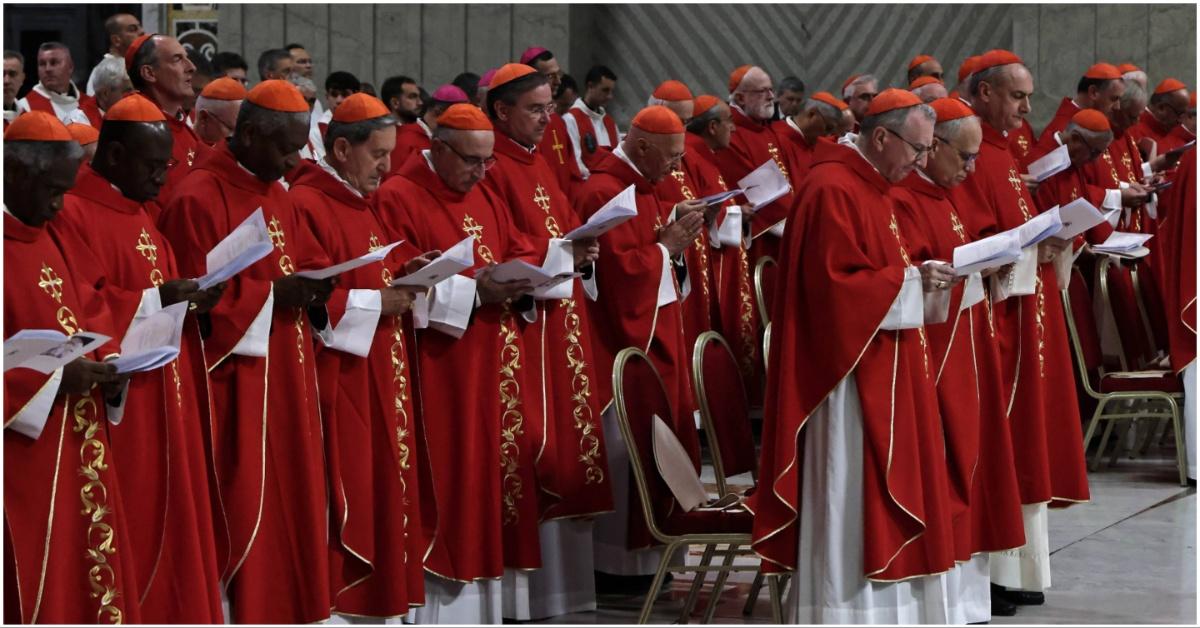From Birettas to Galeros: The Meaning of Different Hats Worn by Cardinals Explained
What is the meaning behind the different hats worn by cardinals?
Published May 8 2025, 10:51 a.m. ET

You’ve probably seen the image by now — rows of Catholic cardinals gathered in solemn formation, some with square red hats, others with round skullcaps, and maybe even one with a wide-brimmed red hat you’ve never seen before. In the wake of Pope Francis’s passing, many have found themselves suddenly curious about Church hierarchy, symbolism, and yes — what’s with all the different hats?
Online forums like Reddit have lit up with questions. One thread sparked a mix of confusion, speculation, and tongue-in-cheek commentary as users tried to decipher the meaning behind the different hats worn by the cardinals. The problem? It’s surprisingly hard to separate fact from sarcasm when you're scrolling through jokes and half-answers.
So, let’s clear it up. Here’s what those hats are called, what they mean, and why not every cardinal is wearing the same one at the same time.

Each of the cardinals’s different hats carries meaning tied to their duty and status, and the biretta is the most recognizable among them.
One of the most iconic pieces of a cardinal’s wardrobe is the biretta — a square, three-peaked hat made of red silk. Though it may look unusual to modern eyes, the biretta has deep roots in the Catholic Church and is traditionally worn during liturgical ceremonies or formal ecclesiastical events.
According to the Catholic Encyclopedia, the red color symbolizes a cardinal’s willingness to defend the faith, even to the point of martyrdom. The three ridges on top are said to represent the cardinal’s threefold mission: to teach, to sanctify, and to govern.
The Pope formally bestows the biretta upon each new cardinal during a special ceremony known as a consistory, symbolizing their new office and responsibilities.
The zucchetto is a subtle but meaningful part of a cardinal’s daily attire
You might miss it if you're not paying close attention, but most cardinals also wear a zucchetto — a small, rounded skullcap that fits snugly on the crown of the head. It's similar in shape to a yarmulke, though the colors and meaning differ.

For cardinals, the zucchetto is scarlet red, just like the biretta. It's worn as part of daily clerical dress and during liturgical services, often underneath larger hats or miters. The color also helps distinguish their rank: Bishops wear purple zucchettos, the pope wears white, and cardinals wear red.
As noted by the Catholic Encyclopedia, the zucchetto signifies the cardinal’s rank and constant service to the Church.
The galero is no longer worn but still symbolizes the height of a cardinal’s office
Perhaps the most misunderstood — and visually dramatic — of all is the galero. This wide-brimmed, flat-topped red hat with fifteen tassels on each side isn’t something you’ll see cardinals wearing today. In fact, the galero hasn’t been officially conferred since 1969, when Pope Paul VI revised the rites surrounding the creation of cardinals, per Wikipedia.
But its symbolism remains powerful. Traditionally, the galero was a sign of a cardinal's elevation and was often hung above their tomb upon death. The practice of allowing it to decay in place was meant to symbolize the fleeting nature of earthly honors, a reminder that even the highest ecclesiastical roles are temporary.
The Philippi Collection, one of the world’s most comprehensive displays of clerical attire, notes that while the galero is now more ceremonial and historical than practical, its image remains in art and tradition.
Seeing cardinals with different hats often reflects timing, context, or ceremonial roles.
So, why do you often see cardinals wearing different hats in photos or while making public appearances? It usually comes down to the specific occasion. Some hats are worn during liturgy, others in processions, and some only during papal ceremonies. Not all cardinals will wear the same hat at the same time, especially if the photo is capturing a mix of formal and informal moments, or clergy from various roles within a single event.
You’ll also see heightened variation in attire during rare but significant events — like a papal conclave, when cardinals from around the world gather to elect a new pope. In such moments, the symbolism of their hats is especially emphasized, reflecting both their authority and their unity in one of the Church’s most solemn responsibilities.